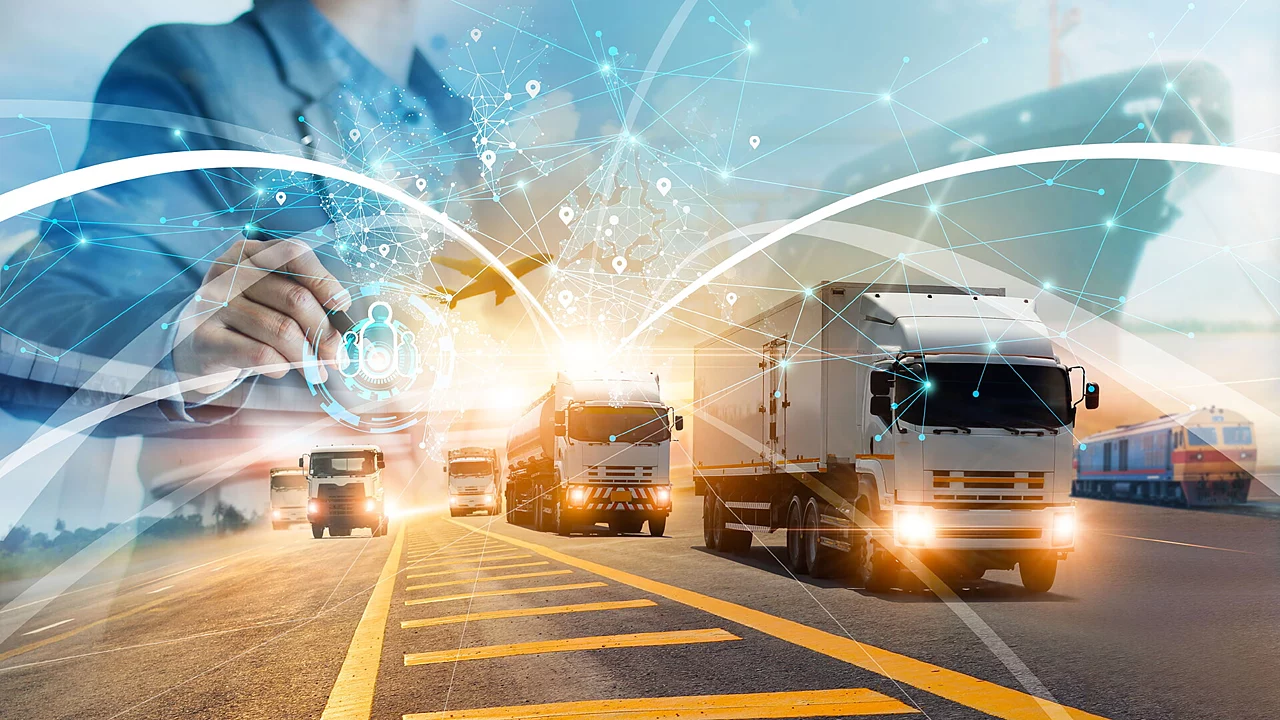The Impact of Technology on Trucking Logistics: Trends and Innovations

In recent years, the landscape of trucking logistics has undergone a profound transformation, largely driven by advancements in technology. From systematic warehouse operations to the emergence of autonomous vehicles, the industry is experiencing a wave of innovations that are reshaping traditional practices.
In this article, we explore the impact of technology on trucking logistics, highlighting key trends and innovations that are driving efficiency and revolutionising the way goods are transported.
Revolutionising Trucking Logistics: The Influence of Technology on Trends and Innovations
a. Automation and Efficiency
One of the most significant changes brought about by technology in trucking logistics is automation. Automation has revolutionised various processes such as sorting, packaging, loading, and unloading, leading to increased efficiency and reduced labour costs. Warehouse management systems equipped with automation technology optimise inventory tracking and more. For instance, pickup trucks like the pickup truck Dekha are actively striving to integrate automation and efficiency into their operations.
Moreover, the integration of conveyor systems with automation technology has streamlined order fulfilment, minimising manual handling and enhancing accuracy. With the use of advanced software for transportation management, logistics companies can exchange data seamlessly and reduce the need for manual data entry, leading to streamlined operations and improved productivity.
b. Enhanced Connectivity and Visibility
Technology has also enhanced connectivity and visibility in trucking logistics, allowing for better communication and real-time tracking of shipments. Integrated IoT sensors attached to vehicles, shipments, and assets provide valuable insights into factors such as temperature, humidity, and fuel consumption, enabling logistics companies to optimise routes and improve transparency throughout the supply chain.
Furthermore, the birth of logistics apps has facilitated seamless communication between consumers, retailers, and logistics providers, enabling efficient operation management and ensuring timely transportation and delivery of goods and services.
c. Data-driven Decision-making
With the abundance of data generated by technology, trucking logistics companies can now make data-driven decisions to optimise operations and improve customer satisfaction. Big data analytics tools analyse large volumes of data to identify trends, patterns, and opportunities for optimization. This data-driven approach enables logistics companies to anticipate demand, optimise inventory levels, and streamline delivery processes, ultimately leading to cost savings and improved efficiency.
d. Sustainability and Eco-friendly Practices
Technology is also driving sustainability initiatives in trucking logistics. Companies are exploring alternative fuels, green energy, and electric vehicles to reduce carbon emissions and minimise environmental impact. Furthermore, logistics apps and software solutions are enabling route optimization and load consolidation, leading to fewer trips, reduced fuel consumption, and lower greenhouse gas emissions.
e. Adoption of Electronic Logging Devices (ELDs)
ELDs automatically record a driver’s hours of service (HOS) and duty status electronically, replacing traditional paper logbooks. This technology ensures compliance with hours-of-service regulations, enhances driver safety, and simplifies record-keeping for fleet managers.
f. Future Trends and Innovations
Looking ahead, several technology trends are expected to shape the future of trucking logistics. Blockchain technology, with its decentralised and unchangeable nature, holds the potential to revolutionise supply chain management by ensuring transparency and traceability of goods throughout the journey. Similarly, artificial intelligence algorithms will play a crucial role in predicting market demand, optimising routes, and planning inventory levels, driving operational efficiency and cost savings.
Autonomous trucks and drones are also expected to make a significant impact on trucking logistics, facilitating faster deliveries and reducing the reliance on human drivers. With advanced sensors and predictive algorithms, autonomous vehicles can optimise fuel consumption and prevent accidents, leading to the safer and more efficient transportation of goods.
Moreover, the integration of 5G networks will support the adoption of emerging technologies in trucking logistics, enabling faster data transmissions and connectivity across wide networks and devices.
These advancements will undoubtedly shape the future of trucking logistics, including companies like Porter Logistics Dhaka, driving innovation and efficiency in the industry.
Conclusion
Technology has transformed trucking logistics, enhancing efficiency, sustainability, and innovation. As companies increasingly adopt technology, the industry evolves, delivering improved services and fostering a sustainable supply chain. One thing is clear today: technology will continue to drive the future of trucking logistics.
